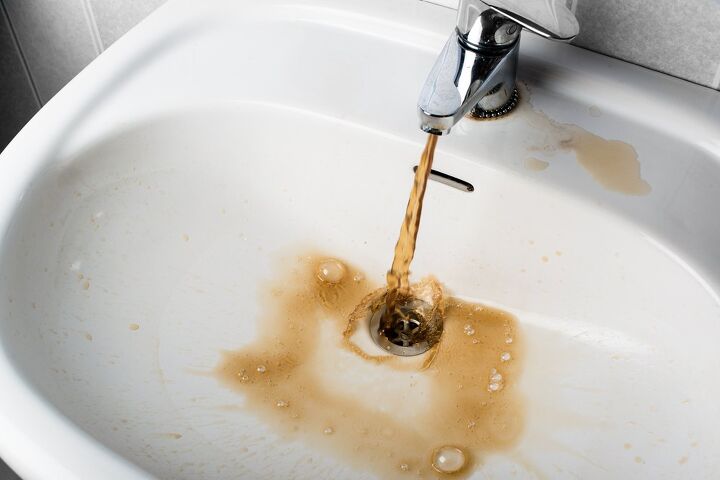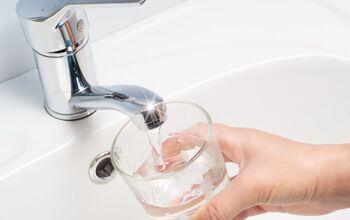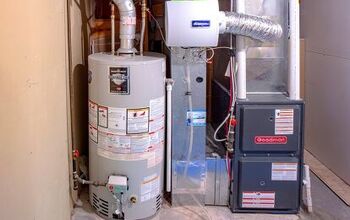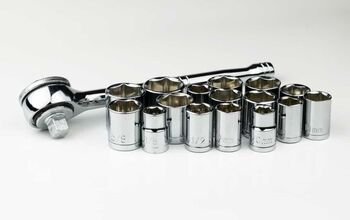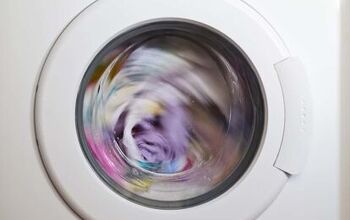Why Is My Water Brown All Of A Sudden? (6 Possible Causes & Fixes)

Why is my water brown all of a sudden? Those are words that you hopefully never have to mutter. Brown water can is also a disturbing, surprising, and sometimes even unsettling occurrence. Imagine that crack-of-dawn shower, only to be interrupted and even awakened by the alarming sight of brown water spewing from the shower faucet.
Brown water can be the result of disturbances to the plumbing system and pipes, pipe corrosion, mineral buildup, lack of use, filtration issues, and natural related causes. Although brown water from the faucet isn’t necessarily dangerous, it can be. This problem generally resolves itself in a few hours. Seeking professional treatment services may be required, however, if it does not clear up on its own.
In addition to the shock and unpleasantness of discovering brown water coming from your bathroom, kitchen, or shower faucets, there are also greater concerns. There are also many reasons why these brown water events happen, and they are probably more common than most people realize.
Here is a look at why there is brown water all of a sudden pouring from the faucets, what you should know, and a few tips to help expedite resolving the brown water problem.
Do You Need to Hire a Plumber?
Get free, zero-commitment quotes from pro contractors near you.

Causes for Brown Water
In most cases, the appearance of brown water doesn’t warrant immediate concern. When that brown water issue persists, however, it may demand another look or more definitive action.
Understanding the causes for why there is suddenly brown water coming from the tap will also help us make the appropriate responses. Knowing the cause of brown water will also help us determine what the concerns and risks are, and if we need to take any responsive measures.
Disturbances to the Plumbing System
Natural, semi-natural, and man-made disturbances to the plumbing system can be the cause behind the brown water in your faucets. Debris, dirt, and particles that have settled can enter the water supply system through these various types of disturbances.
An unusual demand on the water supply system, earthquakes, or hydrant flushing are a few examples of how brown water can eventually end up in your system. Don’t panic. Put that shower off until later, and make a game plan.
How to Respond to Brown Water as a Result of Disturbance
If you are aware of a major event such as an earthquake or noticeable tremor, it could have very well been the cause. It is also worth a visit to the county commissioner’s site for your area for any updates, including water system projects or water safety alerts.
These issues will most often clear up after several hours. It is advisable to run the water every couple of hours for a few minutes to help promote the clearing process.
Pipe Corrosion
Sometimes there is no major construction to the city’s water supply system, and often brown water can just be the natural process of corrosion. If the truth be known, there are countless microscopic particles that are in our tap water every day. This is the natural process of corrosion, but when our water turns brown, just think of it as a mass exodus.
In older homes (pre-1970s) galvanized iron pipes are still in use. These types of pipes are also infamous for rust corrosion, and yes, you guessed it – brown water. This can also appear as orange or even bright orange in color. It is also worth noting any flakes or darker colored chips and particles in the water. This may also be indicative of lead in your water system.
How to Respond to Brown Water as a Result of Corrosion
If you are seeing brown water for the first time in your faucets, then there is no need to worry just yet. Eventually, over time, this can occur (remember this is more common than most know). If, however, this is the second time or this is becoming a recurring event, it is time to take action.
Especially in cases with older homes, the safest and most practical solution is to replace the entire plumbing system. While these issues will typically clear up temporarily, it isn’t advisable to use water that may have potential lead or excess iron contaminants.
Mineral Buildup
Are you noticing brown water primarily when using the hot water faucet? If that is the case then there is a good chance that it is a result of sediment and mineral buildup. This is also one of the more common causes for that unsightly brown water dilemma.
Like most of the other brown water occurrences, these will clear up given a little time. That process can also be helped by running hot water for a few minutes from each of the faucets.
How to Respond to Brown Water as a Result of Sediment and Mineral Buildup
Fixing the brown water problem when using hot water can often be accomplished by flushing the hot water tank. At the bottom of most hot water tanks, any number of sediments and minerals like calcium and magnesium can be found. These can be the cause of brown water and this problem can also harm the hot water tank.
Drain the existing water from the tank, then run clean water through it to remove any remaining sediments or mineral buildup particles. If this doesn’t resolve the problem then it may be time to consider a new hot water tank.
Lack of Use
Another reason for the unwelcome appearance of brown water can be a lack of use. Pipes that have been sedentary, not as in stationary but as in not being used, may often be disturbed upon reactivity. This may also be more common with older homes, as the particles, dirt, sediments, and other contaminants that had settled may now be stirred.
How to Respond to Brown Water as a Result of Lack of Use
Hopefully, if this isn’t a reoccurring issue, then the system will clear itself. It is suggested the faucets be opened up and the water is allowed to run for several minutes. This may need to be repeated once or twice an hour for a few hours.
If the brown water problem persists, then it may be time to take bolder action. That may mean seeking help from water treatment professionals to the replacement of the plumbing system.
Filtration Issues
When a city’s water treatment facility has had issues with its filtration system, it has been known to lead to brown water issues. Thankfully, this isn’t an everyday occurrence, but older or outdated water treatment equipment can lead to such issues.
How to Respond to Brown Water as a Result of Filtration Issues
Hopefully, the water treatment plant will know before you do and there will be some type of advisory issued. It may be worth a call to the county commissioner’s office, however, just to ensure that the problem has been reported.
Natural Causes
Heavy rains, flooding, and issues like those aforementioned earthquakes and tremors are a few examples of the natural causes for seeing brown water. These events can flood the water system, disturb piping, and have other impacts that result in brown water.
How to Respond to Brown Water as a Result of Natural Causes
If you are experiencing brown water after flooding, heavy rain, or other natural events, the good news is it should eventually return to normal. The bad news is, with situations like flooding, it may take some time to restore water to a safe drinking state.
Follow the guidelines of local authorities and ensure that you have enough safe drinking water on hand when these events happen. Yes, brown water happens, but it typically doesn’t hang around for long.
Do You Need to Hire a Plumber?
Get free, zero-commitment quotes from pro contractors near you.

Related Questions
Is it Safe to Use Brown Water for Laundry or Bathing?
There are obvious concerns with drinking brown water, in addition to its look, taste, and smell. And greater concerns such as lead poisoning, and even conditions like hemochromatosis can occur, as previously mentioned but what about other uses. Can you shower or do laundry with brown water?The short answer is no, and for a variety of very good reasons. Showering or using brown water to bathe with isn’t advisable for reasons like the possibility of excess iron being harmful to your skin. And laundry isn’t suggested either using brown water, as stains are highly likely from the various contaminants that are present in the water.In short, until the problem is fixed, it is best to find an alternative to using brown water anytime you need water.
How Much Does It Cost to Replace Plumbing System?
There may be a need to replace part of your piping or your entire plumbing system. Exactly what needs to be done will depend on your brown water situation, the age of your plumbing system, and other considerations. Estimates range from as low as $2000 and as high as $15000 to replace a home’s plumbing system.While that low number may be a bit questionable, the median cost for replacing the plumbing system in a two-bedroom home is about $8000. Like most major projects, there are also many other factors that can influence the cost of replacing a plumbing system.

We are a team of passionate homeowners, home improvement pros, and DIY enthusiasts who enjoy sharing home improvement, housekeeping, decorating, and more with other homeowners! Whether you're looking for a step-by-step guide on fixing an appliance or the cost of installing a fence, we've here to help.
More by Upgraded Home Team



